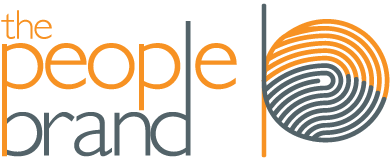When I volunteered on the creative planning team for my local church, we wanted members to share creative ideas freely, even bizarre ideas. One practice in particular encouraged idea sharing. It is called The Covering of Grace.
This came in handy when you had an idea you wanted to share, but were concerned with how others might react. To indicate you were under the covering of grace, you would simply angle your hands together and hold them over your head like a shelter.
Seeing this, the rest of the team knew to extend grace as you explained your idea. This wasn’t a rubber stamp, though. Using “the covering” didn’t automatically qualify your idea or spare it from criticism. Still, others would respect you for being vulnerable and taking the risk of sharing an idea, despite your uncertainty.
The technique was basic, but the power of grace was almost magical. Someone used this practice in nearly every meeting we had.
A while back, I helped perform mock job interviews with design students. I asked some of the typical interview questions about the candidates’ strengths and weaknesses. Several responded with the stereotypical weakness…
Perfectionism.
After hearing this a few different times, I had to restrain myself from rolling my eyes. But it’s not just students or professionals early in their career who use this answer. There is an allure to couching your weakness inside of a pseudo-strength.
But let’s stop calling it perfectionism. We shouldn’t whitewash what it really is: an absence of grace.
When we withold grace, from ourself or others, we suppress creativity. We discourage the sharing of ideas. We erode confidence and trust. We allow fear to rule over decisions so they seem safer. But we lose the magic of grace in the process.
Calling it perfectionism might make you feel better, but it makes it all too easy to dis-grace yourself and others.
Try adding grace to your interactions with others. Share the covering of grace with your teams and encourage them to use it. Practice extending grace to yourself as well.
When you have an idea that’s out there, point your hands over your head and know you are covered. It might be exactly the encouragement you need for your next big idea.

